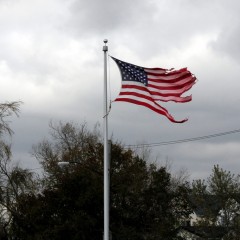MA Contemporary Literature Taster Evening
On Thursday 3rd July, we'll be hosting a Taster Evening for our MA Contemporary Literature and Culture. Sign up here for your free ticket at our Eventbrite page. Click here to download our flyer, or see below for more details: Birkbeck’s MA Contemporary Literature and Culture offers students the opportunity of specializing in 21st century literature and culture, as well as exposing them to the most important literary and theoretical developments of the last few decades. This MA includes consideration of the philosophical legacy of postmodernism, the effects of new technologies on narrative form, and the aesthetic, spatial and political coordinates of writing produced in an increasingly networked and globalized world. Through a range of literary and interdisciplinary options, students have the opportunity to pursue their own interests, whether they lie in exciting developments in contemporary poetics, in US, British, or postcolonial literatures, in contemporary theoretical approaches to art or in socio-historical approaches to the literary and cultural constructions of vectors such as nation, race, diaspora, gender, sexuality and class. The MA provides a comprehensive programme of study that covers the aesthetic, historical and political dimensions of contemporary literature and culture. Core staff teaching on this MA: Caroline Edwards, Anna Hartnell, Joe Brooker, Roger Luckhurst, Carol Watts, Esther Leslie, Joanne Winning, Mpalive Msiska, Stephen Clucas, Heike Bauer. Why study this course at Birkbeck? This course introduces you to the cutting-edge of contemporary literature and culture, offering the unique opportunity to specialize in the post-2000 period. It also provides grounding in some of the key concepts that shape understandings of the contemporary world, including consideration of terms like hybridity, performance, trauma, memory and the uncanny, as well as wider cultural conceptualisations like globalization and postcoloniality. Finally, our MA exposes you to a wider community of scholars and thinkers via a uniquely rich and diverse research culture, involving graduate seminars, reading groups, conferences, guest lectures – including those by practising writers – and the wider arts network accessible in Bloomsbury and central London. In particular, this environment is fostered by close links between the MA and the Centre for Contemporary Literature at Birkbeck, which runs a wide variety of talks and conferences in this field. The programme also has access to a host of other relevant research centres in the School of Arts, including the Centre for Contemporary Poetics, the Centre for Contemporary Theatre and the Centre for the History and Theory of Photography. The School is also actively involved in a number of College-wide Institutes specifically designed to foster work across disciplines at Birkbeck and beyond: Birkbeck Institute for the Moving Image, Birkbeck Institute for the Humanities, Birkbeck...
Rupture, Crisis, Transformation
New Directions in US Studies at the end of the American Century A one-day conference 22 November 2014 Confirmed keynote speakers: Professor Wai Chee Dimock (Yale University) Caryl Phillips 9.30am-6pm, Birkbeck Cinema, 43 Gordon Square CLICK HERE TO VIEW THE CONFERENCE PROGRAMME With panels curated by Dr Rick Crownshaw (Goldsmiths, University of London) and Dr Zara Dinnen (University of Birmingham). This event is free but places are limited. You can reserve a place at Eventbrite: https://www.eventbrite.co.uk/e/rupture-crisis-transformation-new-directions-in-us-studies-at-the-end-of-the-american-century-tickets-11160863443 If you would like any more information about the conference, please contact Anna Hartnell, a.hartnell@bbk.ac.uk Project blog: http://blogs.bbk.ac.uk/afterkatrina/ Hosted by the Centre for Contemporary Literature, Birkbeck, and sponsored by the Arts and Humanities Research Council The twenty-first century has opened with a series of disasters closely associated with the United States: 9/11, Hurricane Katrina, the economic crash. Disasters political, cultural, environmental and economic suggestive of the possibility that US power is on the wane. These ongoing crises, with deep historical roots, contradict the triumphalism of the so-called ‘American Century’, that brief moment of post-war optimism, when the dream of rising living standards for all was briefly fired by a national culture that presented itself as an example to the world. While US action at home and abroad consistently challenged the nation's claim to moral exceptionalism, the gap between the ideal and the reality seemed possible to navigate, inspiring a host of progressive political and cultural movements. According to Lauren Berlant, investment in narratives of progress are now fading as the mirage of the American dream is increasingly shown to be an instance of ‘cruel optimism’, an investment that has repeatedly failed to come good. For Donald Pease, the events that defined the opening decade of the twenty-first century have delivered an unprecedented blow to the narrative of American exceptionalism. For Amy Kaplan, the embrace of the US as ‘Homeland’ in the post-9/11 period signals an emergent national investment in roots that contradict the defining mythology of the US as a nation of immigrants uniquely committed to a boundless future. For Paul Gilroy, the roots of the architecture of the so-called war on terror can be traced back to the European colonial administration, the spectre of which flies in the face of the claim that the United States represents a fundamentally anti-imperialist national project. For Michelle Alexander, ‘the age of Obama’ continues to bear witness to a ‘new Jim Crow’. Given that the African American experience has long acted as whistleblower in relation to national myths and their progressive unfolding, the image of the plantation transformed into the site of mass incarceration for disproportionate numbers of the nation’s black population speaks powerfully to the lingering narrative of US...



Recent Comments